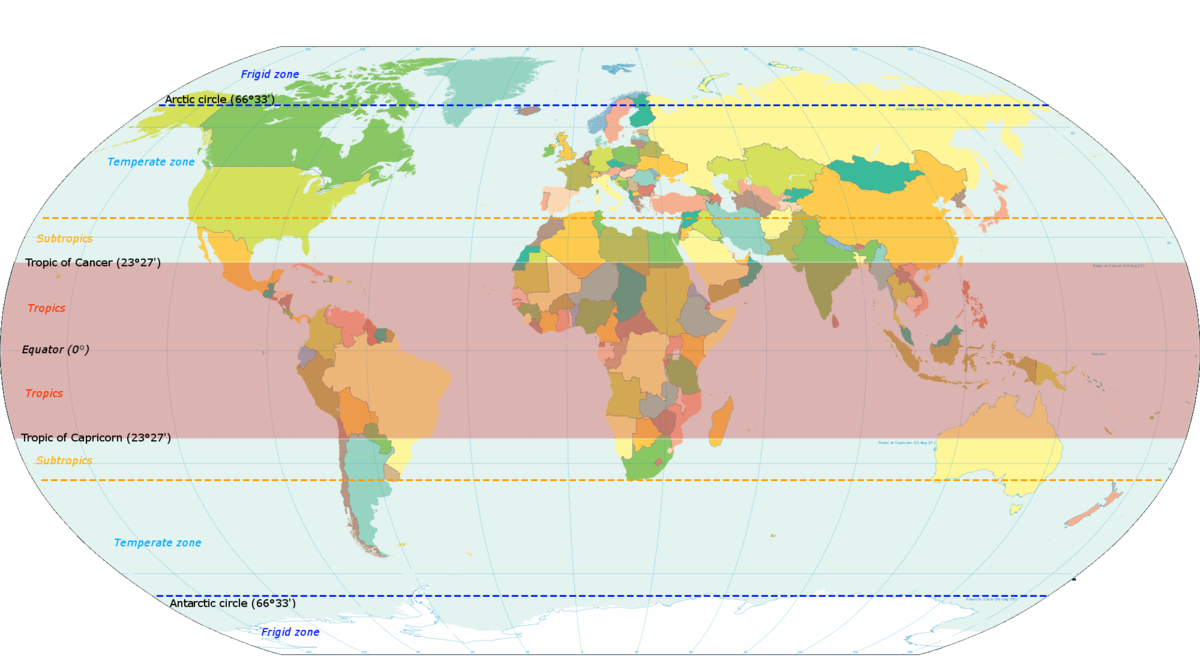Climate change shrinks marine life richness near equator: study
Tropical Marine Zones

- Tropical oceans encircle Earth in an equatorial band between the Tropic of Cancer (23.5° North latitude) and the Tropic of Capricorn (23.5° South latitude).
- The warm tropical oceans play a critical role in regulating Earth’s climate and large-scale weather patterns. Much of the planet’s biological diversity resides in the tropics, and the global distribution of species and ecosystems depends on oceanographic and atmospheric processes that occur in the equatorial oceans.
Why in the news?
- In a recent research published, the scientists found that the total number of open-water species declined by about half in the 40 years up to 2010 in tropical marine zones worldwide.
- The sea surface temperatures in the tropics have risen nearly 0.2℃, hence many tropical marine organisms are moving to cooler waters. Those organisms which are immobile like corals, their population is declining rapidly.
- The changes have been more dramatic in the Northern Hemisphere as the waters here have warmed faster.
- Such changes can have a really huge impact on some of the most vulnerable human communities around the planet, especially those involved in the fishing and tourism industry.
- Some countries like Cuba are developing climate change resilient coral reefs coped best with warming and eventually to repopulate depleted reefs. The country is also restoring coastal mangroves, which serve as fish nurseries and shelter.
- Other countries should take notice of these activities and try to achieve SDG 14 aiming at sustainable life below water.
References:
- https://www.thehindu.com/sci-tech/energy-and-environment/climate-change-shrinks-marine-life-richness-near-equator-study/article34250664.ece
- http://www.waterencyclopedia.com/Oc-Po/Oceans-Tropical.html#ixzz6rPkpSCWE
Subscribe
Login
0 Comments
